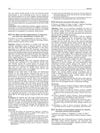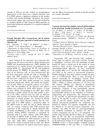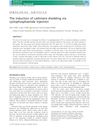 2 citations,
January 2022 in “bioRxiv (Cold Spring Harbor Laboratory)”
2 citations,
January 2022 in “bioRxiv (Cold Spring Harbor Laboratory)” A protein called FERONIA helps control root hair growth in response to cold and low nitrogen by activating nutrient-sensing pathways in a plant called Arabidopsis.
 2 citations,
August 2019 in “BMC Complementary and Alternative Medicine”
2 citations,
August 2019 in “BMC Complementary and Alternative Medicine” Asiasari radix extract may be a potential treatment for melanoma because it selectively triggers cell death in melanoma cells by affecting p53 regulation.
 2 citations,
February 2004 in “Biopolymers”
2 citations,
February 2004 in “Biopolymers” 4-(4-Phenoxybenzoyl)benzoic acid derivatives can both increase and decrease certain types of reactive oxygen species, and may be relevant to hair loss.
 1 citations,
January 2013 in “MedChemComm”
1 citations,
January 2013 in “MedChemComm” PF-05314882 selectively activates androgen receptors without much effect on prostate and may help in prostate cancer treatment and hair loss prevention.
 1 citations,
March 2011 in “Informa Healthcare eBooks”
1 citations,
March 2011 in “Informa Healthcare eBooks” Isotretinoin is a preferred treatment for severe acne, often leading to long-term improvement, but requires careful monitoring due to potential side effects.
 April 2024 in “Frontiers in pharmacology”
April 2024 in “Frontiers in pharmacology” Brepocitinib 30mg is most effective for moderate-to-severe alopecia areata, but ritlecitinib 50mg may offer a better balance of safety and effectiveness.

PCOS requires personalized treatment to improve life quality and reduce health risks.
 August 2023 in “Gadua Journal of Pure and Allied Science”
August 2023 in “Gadua Journal of Pure and Allied Science” Ziziphus spina-christi leaf extract lowered blood sugar and protected organs in diabetic rats.
 October 2022 in “Research Square (Research Square)”
October 2022 in “Research Square (Research Square)” The conclusion is that certain chemicals from Bacillus subtilis help improve plant root growth through a hormone-related process.
 April 2019 in “Radiotherapy and oncology”
April 2019 in “Radiotherapy and oncology” HPV infection is linked to better survival in advanced anal cancer, higher radiation doses improve survival, especially in HPV-negative patients, and prostaglandin E₂ pretreatment can protect mouse hair follicles from radiation damage.
 May 2018 in “European Journal of Dermatology”
May 2018 in “European Journal of Dermatology” Adjusting the medication tacrolimus resolved a boy's red nail beds after a stem cell transplant.
 January 2017 in “Elsevier eBooks”
January 2017 in “Elsevier eBooks” Sex hormones affect reproduction, sexual development, and oral health, and it's important for dental practitioners to understand their effects and interactions.

North American ginseng extract helped regrow hair in balding mice.
 September 2013 in “Neurodegenerative disease management”
September 2013 in “Neurodegenerative disease management” Teriflunomide is effective and generally safe for treating relapsing multiple sclerosis, reducing relapse rates and disability progression.
 September 2009 in “European journal of paediatric neurology”
September 2009 in “European journal of paediatric neurology” Biotin supplements did not significantly reduce hair loss in rats on valproic acid.
 March 2008 in “Aging health”
March 2008 in “Aging health” Docetaxel is safe and works well for older people with cancer, with manageable side effects.
 May 2006 in “Frontiers in Neuroendocrinology”
May 2006 in “Frontiers in Neuroendocrinology” Progesterone and its metabolites affect myelin protein expression differently in male and female rat Schwann cells.
 September 2004 in “Experimental dermatology”
September 2004 in “Experimental dermatology” Melatonin directly affects mouse hair follicles and may influence hair growth.
 August 1994 in “Journal of dermatological science”
August 1994 in “Journal of dermatological science” Different substances affect hair and skin cell growth in various ways, with some promoting and others inhibiting cell proliferation.
 January 1989 in “Side effects of drugs annual”
January 1989 in “Side effects of drugs annual” Some cancer and immune system drugs can cause serious side effects, including heart, lung, nerve, and organ damage, which need careful monitoring and management.
 21 citations,
July 2014 in “Clinics in Dermatology”
21 citations,
July 2014 in “Clinics in Dermatology” Hormonal contraceptives can help treat acne by affecting sebum production and androgen levels.
 2 citations,
January 2018 in “Elsevier eBooks”
2 citations,
January 2018 in “Elsevier eBooks” Targeted therapies for lung cancer are effective but require careful management of side effects to benefit patients.
 1 citations,
October 2017 in “Animal science journal”
1 citations,
October 2017 in “Animal science journal” Cyclophosphamide effectively induces cashmere shedding in goats without affecting their overall health.
 1 citations,
May 2001 in “Pharmacology & Toxicology”
1 citations,
May 2001 in “Pharmacology & Toxicology” Cyproterone acetate may cause liver cancer at high doses, but is considered safe at recommended doses for approved uses.
 December 2017 in “Springer eBooks”
December 2017 in “Springer eBooks” Transplant patients often get skin problems, with treatments varying by condition.
5 citations,
January 2012 in “International journal of trichology” Chemotherapy-induced hair loss is a major concern, but various treatments show promise in preventing and reversing it.
September 2024 in “Actas Dermo-Sifiliográficas” Sublingual minoxidil is a safe and effective treatment for hair loss, especially in women.
 5 citations,
February 2017 in “Biomolecules & Therapeutics”
5 citations,
February 2017 in “Biomolecules & Therapeutics” 4-O-Methylhonokiol helps protect skin cells from growth-stopping effects of a protein by regulating growth-related pathways.
Boosting certain cell signals can prevent hair loss from chemotherapy and radiation.
Boosting certain cell signals can prevent hair loss from chemotherapy and radiation.

























